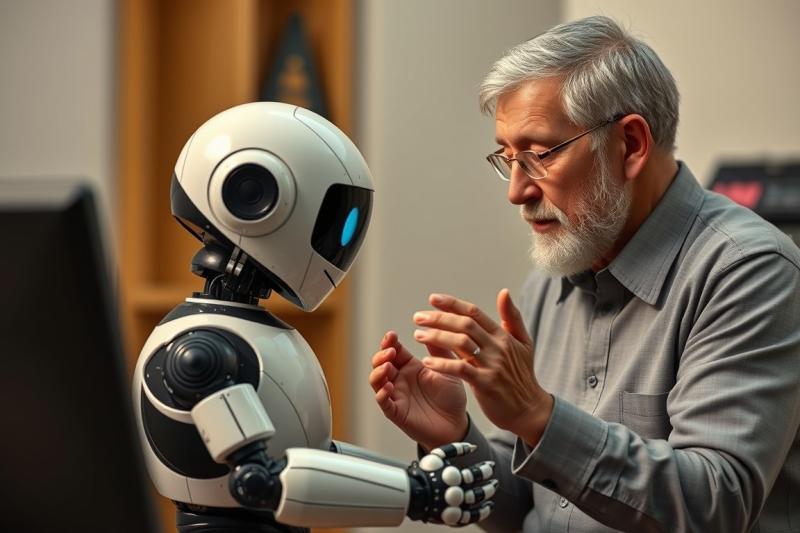In today's ever-evolving world of technology, artificial intelligence (AI) has become a game-changer in almost every aspect of our lives. From healthcare to finance, and now to travel, AI is revolutionizing the way we plan and experience our trips. In this blog article, we will delve into the future of travel and how AI technology, particularly with the innovative platform Phileas, is transforming the way we plan our adventures. Join us as we explore how AI is shaping the future of trip planning and enhancing our overall travel experience.
The Impact of AI on the Travel Industry
Artificial Intelligence (AI) has transformed the travel industry in numerous ways, revolutionizing how companies operate and enhancing customer experiences. One of the most significant impacts is seen in personalized recommendations and booking assistance. AI algorithms analyze vast amounts of data such as browsing history, preferences, and trends to provide tailored suggestions for flights, accommodations, activities, and more. This not only streamlines the booking process but also improves customer satisfaction by offering options that align with their interests. Additionally, chatbots powered by AI have become essential tools for customer service in the travel sector. These virtual assistants can quickly answer queries, provide real-time updates on bookings or travel information, and even help resolve issues efficiently without human intervention.
Moreover, AI technology has greatly improved safety and security measures within the industry. Facial recognition software at airports enhances security screening processes while predictive analytics help identify potential risks before they escalate. This proactive approach to risk management ensures a smoother travel experience for passengers while reducing incidents of fraud or threats.
Furthermore, AI has played a crucial role in optimizing operational efficiency for travel agencies and companies. By automating tasks like inventory management or pricing strategies based on demand forecasts, businesses can streamline processes and make more informed decisions quickly. This results in cost savings and competitive advantages within a highly dynamic market.
Overall ,the impact of artificial intelligence on the travel industry cannot be overstated.It continues to reshape how businesses engage with customers,optimize operations,and enhance overall experiences.AI will undoubtedly remain a key driver of innovation,digital transformation,and growth within this ever-evolving sector moving forward .
Introduction to Phileas: The Revolutionary AI Platform for Trip Planning
Phileas is a revolutionary AI platform that has transformed the way people plan their trips. Unlike traditional trip planning methods that are time-consuming and often overwhelming, Phileas simplifies the process by using advanced artificial intelligence algorithms to personalize every aspect of your journey. Whether you're looking for the perfect hotel, restaurant recommendations, or must-see attractions in a new city, Phileas offers customized suggestions based on your preferences and travel style. By analyzing vast amounts of data and user feedback, Phileas can provide you with accurate and up-to-date information to ensure a seamless travel experience.
One of the key features of Phileas is its ability to adapt to changing circumstances in real-time. If there's a sudden change in flight schedule or weather conditions at your destination, Phileas will automatically update your itinerary to keep you informed and help you make necessary adjustments on-the-go. Additionally, Phileas offers interactive maps that display recommended routes for exploring a new city efficiently and safely.
Another standout feature of Phileas is its social integration capabilities. You can easily share your trip plans with friends and family members through popular messaging apps or social media platforms directly from the app itself. This not only enhances collaboration when traveling with others but also allows you to receive instant feedback or suggestions from loved ones in real-time.
In conclusion, Phileas is not just another trip planning tool – it's an intelligent travel companion that understands your needs and helps you create memorable experiences wherever you go. With its intuitive interface, personalized recommendations, real-time updates, interactive maps, and social integration features,'s clear why travelers around the world are turning toPh ileviolrlebruary1oI 0for an effortless trip planning experience like never before.'tend’tell'ronsultntaclearnablentgenerpormationefore.ctuit:tribe.consistenwilssion oppffonelated edbe。
Benefits of Using AI in Travel Planning
Artificial Intelligence (AI) has revolutionized the way we plan our travels, offering a plethora of benefits to travelers worldwide. One major advantage of utilizing AI in travel planning is the ability to personalize recommendations based on individual preferences and past behavior. By analyzing vast amounts of data, AI algorithms can suggest destinations, accommodations, and activities that are tailored to one's interests and budget. Additionally, AI-powered chatbots provide real-time assistance to travelers by answering queries, making reservations, and providing updates on flight statuses. This not only saves time but also ensures a seamless travel experience from start to finish. Moreover, AI technology can predict pricing trends for flights and accommodations, allowing travelers to secure the best deals possible while avoiding price hikes. With its ability to streamline processes and offer personalized recommendations, it's clear that AI is transforming the way we plan our trips for the better.
Challenges and Limitations of AI in Tourism
Artificial Intelligence (AI) has revolutionized the tourism industry with its ability to personalize experiences, improve efficiency, and enhance customer satisfaction. However, there are various challenges and limitations that come with implementing AI in tourism. One of the main challenges is ensuring data privacy and security when collecting large amounts of personal information from travelers. This raises concerns about how this data is being used and whether it could be vulnerable to cyber attacks. Another challenge is the reliance on technology for decision-making processes, which may result in a lack of human touch and personal interactions that are essential in the hospitality sector. Additionally, AI algorithms may struggle to accurately predict human behavior or emotions, leading to potential misinterpretations or misunderstandings during interactions with customers. Moreover, there is a significant investment required to develop and deploy AI systems within tourism businesses, making it inaccessible for smaller companies or destinations with limited resources. Despite these challenges and limitations, proper regulation and oversight can help mitigate risks associated with AI implementation in tourism while still leveraging its benefits for enhanced customer experiences and operational efficiencies.
The Future of Artificial Intelligence in Enhancing the Travel Experience
The future of artificial intelligence in enhancing the travel experience is promising as technology continues to advance at a rapid pace. With AI-powered tools and services, travelers can expect a more personalized and seamless journey from start to finish. For example, AI algorithms can analyze vast amounts of data to recommend personalized travel itineraries based on individual preferences and past behaviors. Virtual assistants powered by AI can provide real-time assistance for booking flights, accommodations, and activities, as well as answering any questions or concerns that may arise during the trip. Additionally, AI-driven chatbots can streamline customer service interactions by providing instant responses to inquiries or issues. Furthermore, facial recognition technology enabled by AI can enhance security measures at airports and hotels while also speeding up check-in processes. As the travel industry continues to embrace artificial intelligence technologies, travelers can look forward to a more efficient and enjoyable overall experience that is tailored specifically to their needs and desires.
In conclusion, the integration of artificial intelligence in the travel industry through platforms like Phileas is undoubtedly reshaping the way we plan and experience our adventures. The benefits of using AI for trip planning are clear, from personalized recommendations to efficient itinerary creation. While there may be challenges and limitations to overcome, it is clear that AI has a bright future in enhancing the overall travel experience. As technology continues to evolve, we can expect even more innovative developments that will further revolutionize how we explore the world. So next time you're planning a trip, consider harnessing the power of AI to make your journey truly unforgettable. Start exploring with Phileas today and embrace the future of travel!






































